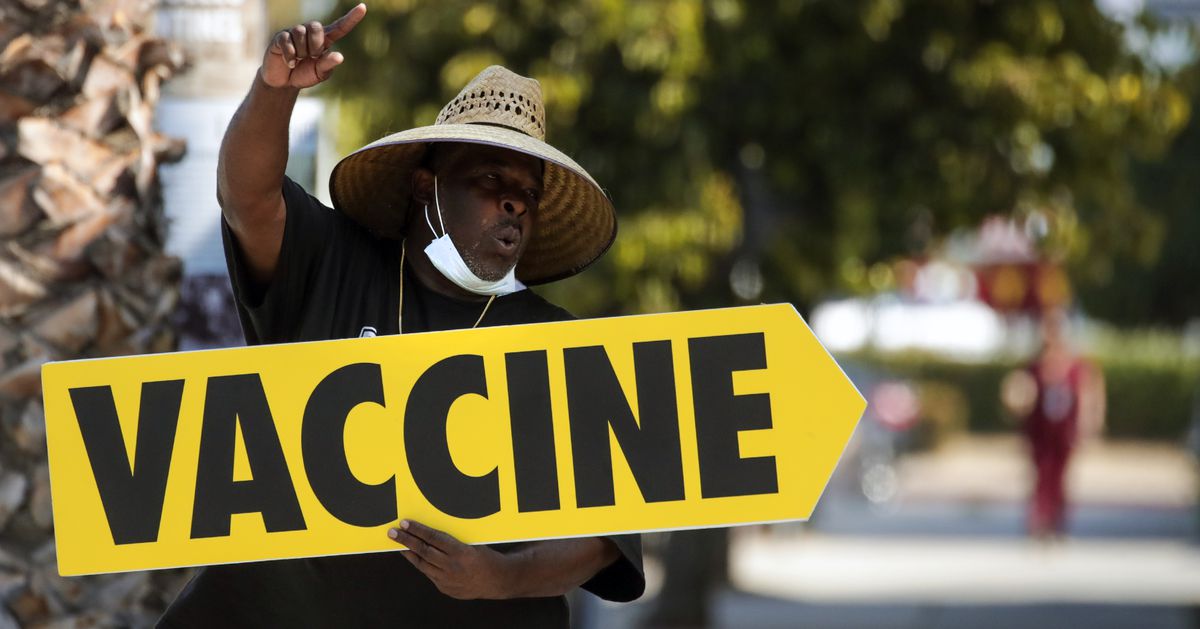Some health officials now think a third shot could help older and immunocompromised people.
The Biden administration now believes that fully vaccinated people who are older or immunocompromised may need a booster shot.
Though all three vaccines authorized for use in the United States — Pfizer/BioNTech, Moderna, and Johnson & Johnson — are highly effective in preventing Covid-19 infections, recent data suggests that the efficacy of Pfizer’s two-dose vaccine can wane slightly four to six months after vaccination, according to the New York Times.
However, a booster shot could lift antibody levels even more substantially than the current two-dose regimen for the Pfizer and Moderna vaccines, and could be especially beneficial for people 65 and older and those who are immunocompromised.
People who are immunocompromised may receive significantly less immune protection than the general population after two vaccine doses, increasing the upside of a potential third shot.
Immunocompromised people are also more likely to become severely ill from Covid-19, and they have a markedly higher chance of experiencing breakthrough infections despite being vaccinated — a concern magnified by a delta variant-fueled resurgence of Covid-19 cases in the US.
Data from Israel, where Covid cases are once again rising, suggest that an even sharper decline in effectiveness against symptomatic infections is possible — but even then, the vaccine remains “more than 90 percent effective in preventing severe disease,†and the small sample size means there is still uncertainty about Israel’s findings.
A booster shot administered at the six-month mark could increase antibody levels as much as tenfold, according to data released earlier this year by both Pfizer and Moderna, underscoring its potential value to older and immunocompromised people.
Israel is already offering a third Pfizer shot for immunocompromised residents — though millions of Palestinians in the West Bank and the Gaza Strip have yet to be vaccinated — and Pfizer has previously suggested that a booster shot could be needed in the US.
Though the US currently has tens of millions of surplus Covid-19 vaccine doses on hand, making a third Pfizer or Moderna shot available to millions of immunocompromised or elderly Americans likely won’t be a quick process.
Currently, all three Covid-19 vaccines in use in the US are being administered under an emergency use authorization, or EUA, issued by the FDA, which sets specific regimens for each vaccine: two doses several weeks apart for both Pfizer and Moderna, and a single dose for Johnson & Johnson.
According to the New York Times, “doctors would have vastly more leeway to prescribe a booster for their patients†once the vaccine is fully approved by the FDA.
However, the Pfizer/BioNTech vaccine has already been granted a priority review, which shortens the potential timeline to six months, and multiple officials have said approval will likely come even sooner, potentially clearing the way for booster shots for older and immunocompromised people.
As the Biden administration consensus coalesces behind the need for a booster shot for vulnerable groups, the delta variant of Covid-19 is gaining ground quickly in the US, fueling a sharp rise in new cases.
As Vox’s Umair Irfan explained in late June, when delta accounted for just 20 percent of new Covid cases in the US, the CDC has identified delta as one of five “variants of concern.†Not only does it spread far faster than the original strain of Covid, but it’s better at evading vaccine protections, and, as Irfan reports, there’s some evidence that it can cause “more severe outcomes from Covid-19 compared to the original versions of the virus.â€.
Almost every COVID-19 patient in Springfield’s hospitals is unvaccinated, and the dozen or so exceptions are all either elderly or immunocompromised people.
If people don’t get them, the actual end will look more like Springfield’s present: a succession of COVID-19 waves that will break unevenly across the country until everyone has either been vaccinated or infected.
As of Saturday, about 57 percent of the vaccine-eligible population in the US — more than 162 million people — have been fully vaccinated, according to data from the CDC.
That level of widespread vaccination is unequivocally good news, but with US Covid cases on the rise and the delta variant running rampant, it invariably also means some of the new Covid cases in the US are “breakthrough infections†— fully vaccinated people nonetheless testing positive for Covid-19.
The good news about breakthrough infections, though, is that if you’re vaccinated and get sick with Covid-19, you’re far less likely to get severely ill than you would without a vaccine.
And by the same token, getting more people vaccinated will also go a long way toward protecting older and immunocompromised people who have already been vaccinated but may now need a booster shot
#ACIP member Keipp Talbot made an impassioned plea for people to get vaccinated as a way to protect those who cannot get enough protection from the #Covid vaccines
